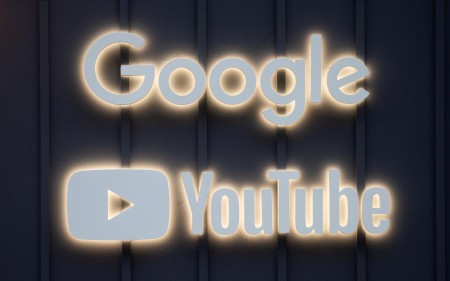(Reuters) – YouTube speeds in Russia are set to sharply decline on desktop computers due Google’s failure to upgrade its equipment in Russia and its refusal to unblock channels of Russian media, a senior lawmaker close to the authorities said on Friday.
Russia has criticised Alphabet’s Google for taking down YouTube channels of Russian media and public figures and fined the U.S. company several times for failing to remove content Russia considers illegal or undesirable.
Alexander Khinshtein, head of the lower house of parliament’s information policy committee, on Thursday said slower speeds on the video hosting site was a forced step directed against YouTube for believing it could violate Russian law without punishment.
Writing on Telegram on Friday, Khinshtein sought to clarify those comments, and his claim that YouTube download speeds in Russia were down 40% and set to drop next week by up to 70%.
“This is primarily due to the actions (or rather inaction) of YouTube itself,” Khinshtein said.
Communications regulator Roskomnadzor said YouTube’s quality was declining as Google had not upgraded its Google Global Cache servers in Russia.
Khinshtein also said Google had not invested in Russian infrastructure and allowed its local subsidiary to go bankrupt, thereby preventing it from paying for local data centre services.
Google did not respond to a request for comment on those accusations.
YouTube blocked access around the world to channels associated with Russian state-funded media in March 2022, citing a policy barring content that denies, minimises or trivializes well-documented violent events. It said Russia’s invasion of Ukraine fell under its violent events policy and violating material would be removed.
Google’s Russian subsidiary filed for bankruptcy later that year, saying that the seizure of its bank account by Russian authorities had made it untenable for its Russia office to function, including paying Russia-based employees, suppliers and vendors.
Russia has blocked and slowed down other social media, restrictions that many Russians circumvent using virtual private networks (VPNs). Chechen leader Ramzan Kadyrov on Friday proposed blocking YouTube outright.
Moscow’s biggest gripe, Khinshtein said, was YouTube’s “openly anti-Russian policy” and its refusal to unblock Russian channels, as demanded by Roskomnadzor.
(Reporting by Alexander Marrow in London; Editing by David Evans)


